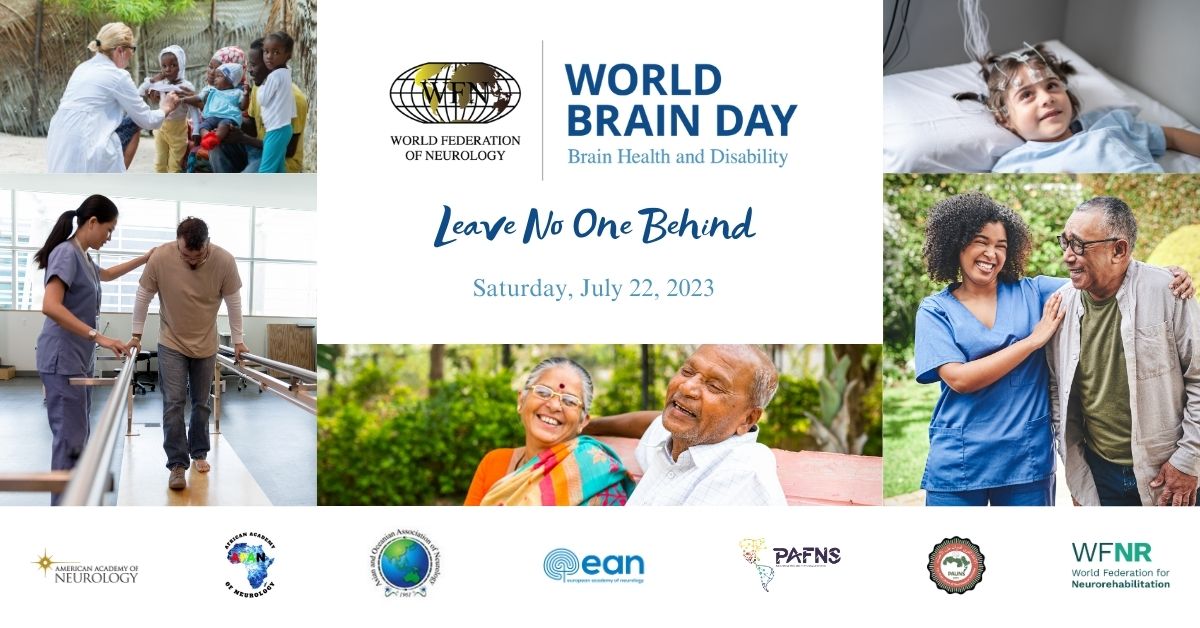July 22, 2023, is World Brain Day, and the theme is Brain Health and Disability. But, why does it matter to have a World Brain Day? According to the Journal of Neurological Sciences, an estimated 1.3 billion people around the world are living with disabilities, and neurological diseases account for a large portion of those disabilities, some of which are preventable or treatable.
People with brain disabilities also deal with a considerable amount of stigma depending on their culture, ethnicity, lack of access to care, or economic status. Knowledge, understanding, and resources can help reduce this stigma and enable these individuals to enjoy a better quality of life. Additionally, widening access to treatment and brain health advocacy play a key role in alleviating the burden of neurological disorders.
According to Nature Reviews Neurology, one in three people will experience a neurological disorder in their lifetime. Between 1990 and 2016, neurological disorders were the second largest cause of death globally, with stroke, Alzheimer’s disease (and related dementia conditions), and meningitis being the leading contributors to those deaths. Also, neurological disorders were the leading cause of disability-adjusted life years within that time frame.
In addition to being emotionally and physically taxing, brain diseases and disabilities are financially expensive:
- Stroke costs $900 billion globally each year.
- In 2019, costs related to dementia totaled $1.3 trillion globally.
- For Canada, Japan, the US, the UK, and Germany, sleep disorders result in an estimated $700 billion in economic costs each year.
Expanding access to treatment could be instrumental for reducing the impact and incidence of neurological disorders. Lack of appropriate healthcare has a significant effect on families and caretakers who struggle to meet needs without greater resources and support.
Why Brain Health Is Important to Human Thriving
Brain health is critical to human development, growth, and progress. Impairments to brain health have a domino effect on global economic systems and civilization at large.
“Brain capital encompasses the creativity, knowledge, and skills that individuals accrue and improve on during their lifetime, which enable them to realize their potential and contribute productively and meaningfully to the economy and society at large,” say the writers of the study in Nature Reviews Neurology. “Promotion and protection of brain health are central to the development of brain capital, which is itself essential for human capital development.”
Advances in brain health, including surgical innovations and new treatments for conditions like Alzheimer’s, epilepsy, and certain cancers (just to name a few) are helping to reduce the burden of neurological conditions. Additionally, initiatives like the World Health Organization’s new Intersectoral Global Action Plan on Epilepsy and other Neurological Disorders 2022–2031 are improving awareness and action regarding brain health around the world.
SpecialtyCare Focuses on Innovation for Better Health
At SpecialtyCare, our mission is to make surgery safer — and that includes complex surgeries for brain diseases and disabilities. Our IONM teams work with surgeons around the country to help reduce the risk of long-term injury during surgery, and our goal is to provide services with the highest degree of excellence to improve patient outcomes. If you’re interested in how SpecialtyCare’s IONM services can help your OR perform at its very best, contact us today.
